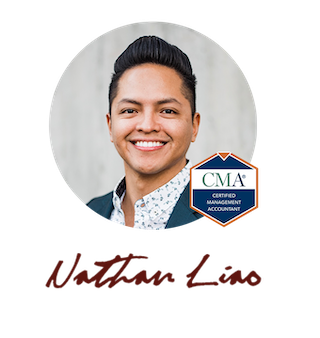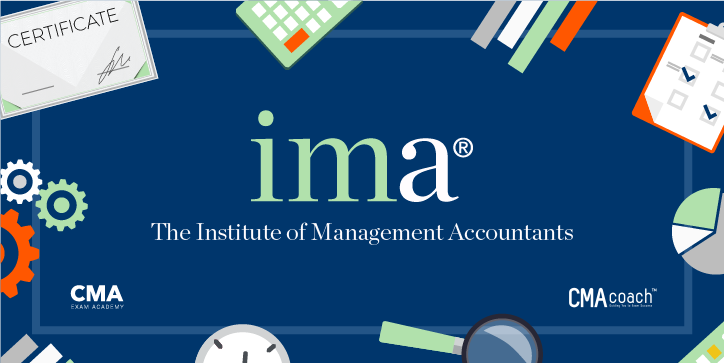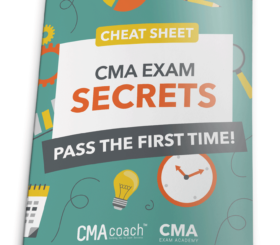In the United States, management accountants and financial professionals are governed by the IMA – the Institute of Management Accountants.
But what does that mean and who is the IMA exactly?
The short story is the IMA offers networking and professional development to accountants all over the world. They are responsible for providing a code of ethics and standards to management accountants.
The IMA is so much more than that though, so let me break out the long story.
The History of the Institute of Management Accountants, or IMA
The IMA was created in 1919. They were originally called the National Association of Cost Accountants (NACA). While their name may have changed, their goal to champion for accountants has been unwavering.
The organization was founded nearly 100 years ago in an effort to grow people’s understanding of an accountant’s role and skillset in management positions. The idea was to take this understanding universally and in 1943 the first international chapter was chartered in Cuba.
In 1957, NACA transitioned to the National Association of Accountants (NAA). As the years went on, the organization continued growing and providing continuous professional support through publications and practices committees.
It wasn’t until 1972 that the Certified Management Accountant (CMA) certification was created.
What’s so significant about the CMA certification is that it is the first program of its kind to provide continuing professional education in accounting and financial management.
The CMA certification provides candidates with a super-charged skill set. Once candidates have earned the CMA they will be proficient in areas like budgeting and planning, business reporting and decision analysis, as well as risk management.
It wasn’t until 1991 that NAA became the Institute of Management Accountants (IMA). Since then they have created other designated programs like Certified Financial Manager (CFM) and Certified in Strategy and Competitive Analysis (CSCA) credential. The CSCA certification is an upgrade to the CMA, steering your career towards strategy and planning roles.
As of 2016 over 50,000 candidates have earned their CMA certification worldwide.
IMA’s Mission and Core Values
The IMA’s mission is “to provide a forum for research, practice development, education, knowledge sharing, and advocacy of the highest ethical and best business practices in management accounting and finance.”
In order to achieve this mission to do so by offering the CMA credential, growing and nurturing their professional network and by making continuous professional education opportunities available.
On top of all this, the IMA believes in 5 core values.
Respect for the Individual
The IMA values any and all cultural differences and aims to communicate openly and regularly.
Passion for Serving Members
They aim to empower all members and advocate for their growth and continued education. In order to make this possible, the IMA has many volunteers who dedicate both their time and expertise.
Highest Standards of Integrity and Trust
The IMA holds itself and all members to the highest of standards and follows a strict code of ethics.
Innovation and Continuous Improvement
Always looking for ways to improve, the IMA spends lots of time researching and publishing new information and innovations. In fact, in 2015 the IMA launched a new line of books, the first being a volume on innovation.
Teaming to Achieve
The IMA believes in the importance of giving credit where it is due and celebrating member achievements. In 1989 the IMA created the Financial Executive of the Year (FEYA) program to do just this.
The IMA’s Global Reach
Since its inception, the IMA has gained a stronghold in 140 countries and opened more than 300 professional and student chapters. It holds offices in 8 international regions and its membership continues to grow annually.
With the number of candidates growing exponentially in the Middle East and Asia it was only a matter of time before the CMA exam was adapted into another language. In 2011 the first version of the CMA exam in simple Chinese was released.
There are other financial bodies that accountants can align themself with, however, I believe that the IMA offers so much to its members. As a member myself, I can vouch for their willingness to grow and innovate.
If you are interested in becoming a member and adding the CMA credential to your resume, click here to learn more.
The Difference Between Wiley, IMA and ICMA
If you are on the path to becoming a CMA then you will likely hear a lot about Wiley, ICMA and IMA. So what is the relationship between all three?
For starters, the IMA is an administrative association that manages memberships and provides support to those individuals, however, they are not at all involved in the grading of CMA exams.
Wiley is an independent CMA exam review program. While they are endorsed by the IMA through a partnership, this has no bearing on whether or not you will actually pass the exam and does not give you a leg up.
How can this be?
Simply put, the ICMA is the examining body for the CMA exam and they do not share any insider tips or secrets to Wiley’s review program or the IMA. They are a completely independent entity responsible for the impartial grading of all CMA exams.
While all of these entities overlap one another, they do not influence your actual exam results.
Looking for more info on the IMA? Drop your questions in the comment section below.
More from Nathan
Certified Management Accountant Certification
Your CMA Resume – How to Optimize It
Episode 7 – The Best CMA Exam Prep Secrets by IMA’s Vice President

Hi, I’m Nathan Liao (aka the CMA Coach)! For the last 10 years, over 82,000 accounting and finance pros came knocking at my door seeking guidance and help. If you’re also aiming to conquer the CMA exam on your very first try—without wasting away time or money—you’ve found your ultimate guide. Dive in deeper to discover more about me and the dedicated team that powers CMA Exam Academy. Click here and let’s embark on this journey together!



8 Comments on “The Institute of Management Accountants”
I want start the CMA course very soon.
I have approximately over 20 years of Acounting and Finance experience in MiddleEast and North America.
I completed my Bachleors degree in Acounting and Finance and have done some Management and cost accounting courses .
Please let me know at what level do I have to start the CMA course.
I can send the Bachelor’s degree in Accounting and Finance, relevant courses and my Resume to prove.
Please let me know how to start the CMA course and at what Level and the address to send the documents for approval to start CMA.
Thanks and regards,
Parvez
Hi Parvez,
The CMA journey can be confusing, at first. To help clarify all the steps, I’ve written an article to help candidates like you understand the entire process step by step. Here it is https://cmaexamacademy.com/how-to-become-a-cma-in-just-over-6-months/ref/nathan/
If you have any other questions please don’t hesitate to hit reply.
Nathan
Pingback: Certified Management Accountant Salary: A Guide for 2020
Pingback: How to Become a CMA: 10 Steps to Getting Certified
Pingback: How to Become a CMA - CMA Coach
Pingback: The Best CMA Study Materials - Study Strategies and Exam Hacks - CMA Exam Academy
Hi Nathan,
Thanks for all your informative emails relating to the CMA.
I have two questions that I was hoping you could answer for me.
1 For someone like myself who’s considering to study for the CMA exam but has no accounting work experience, will I find it hard to find that first job where I can get the all-important two years of relevant experience?
2 Approximately how much per hour would someone earn starting out in this line of work, ie in the first year (of the required 2 years of financial work experience)? I would hope to have the two CMA exams passed before I start looking for the relevant work experience.
Kind regards,
Michael White
Hi Michael, you are welcome. I’m glad you find them informative 🙂
Regarding your questions:
1) For someone with zero accounting work experience it will be more difficult. The CMA may help you land a Jr. Accountant type of job to learn the ropes. That is still above transactional positions like A/P or A/R, etc. If I had to guess, I’d say it will take you around 3 to 4 years to get the 2 year relevant work experience.
2) As for an hourly rate, it’ll vary widely with where you live and plan to work, the type of industry and company size. The best way to find out is to reach out to a staffing agency in your city that specializes in accounting placements. They’ll be able to provide you with a more accurate estimate.
Thanks for reading my emails and blog. Rooting for ya! Nathan